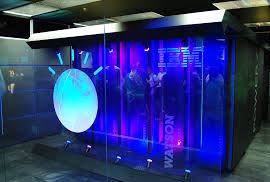
IBM Joins with Universities to Push Data Analytics

Big data is making inroads into U.S. university science and engineering curricula as major players like IBM team up with research institutions.
For starters, Ohio State University announced this week it would introduce a new undergraduate major in data analytics beginning in the fall semester. Ohio State claims the interdisciplinary major is the first of its kind being offered by a major U.S. university.
Also this week, IBM said it is partnering with seven U.S. universities to offer courses on cognitive computing, IBM-speak for big data analytics. Partnering with IBM Watson Group to promote student app development are Carnegie Mellon University, New York University, Ohio State, Rensselear Polytechnic Institute, University of California, University of Michigan and the University of Texas.
Ohio State said its big data major is designed to address a growing need for data analytics professionals. Hence, it’s colleges of Arts and Sciences as well as Engineering will roll core courses in computer science, mathematics and statistics into an undergraduate degree program in data analytics.
“Expertise in data analytics will be in demand in virtually all areas of human enterprise,” Peter March, dean of the natural and mathematical sciences at Ohio State’s College of Arts and Sciences, said in a statement.
The university said its core curriculum will cover data representation and big data management, software design and programming along with statistical modeling and analysis. Upper classmen would then select specialize areas of data analytics in advanced of internships with university partners or businesses.
Areas of specialization within the data analytics major include biomedical informatics, business analytics and computational analytics, the university said.
The data analytics education trend is similar to the explosion of university courses and majors in cybersecurity as government agencies and businesses struggle to find qualified cyber specialists.
Meanwhile, IBM said its university partners would begin offering cognitive computing courses beginning in the fall 2014 semester. The courses were designed by Watson Group engineers along with artificial intelligence a computer science experts.
The hope is that the data analysis courses will encourage students to develop new cognitive computing applications that leverage IBM’s Watson artificial intelligence engine.
Students enrolled in the cognitive computing courses will form business teams and be given access to the Watson Developer Cloud. Once the team has selected an area of focus such as retail, travel or health care, they would collect relevant industry data and feed it into Watson. Once the AI tool is “trained,” the student teams would develop prototype apps and a business plan.
The courses would also cover underlying Watson technologies like natural language processing and machine learning, IBM said. From there, students would interact with the Watson Developer Cloud in specialized courses focusing on areas like creating cognitive computing apps in the cloud.
IBM said its university initiative dovetails with previous efforts involving technology startups and investor-backed companies designed to establish an ecosystem around IBM’s cognitive computing flavor of data analytics.
Besides providing access to the Watson Developer Cloud, IBM said it would provide guest lecturers, technical mentors and help with course development. It is also launching a Watson Faculty Advisory Board to advance cognitive computing curriculum.
In a blog post, a University of Michigan software engineering professor whose students have designed apps for the disabled said, “We’re going to be using IBM’s Watson as our primary tool for building applications. So, instead of identifying a disability and then finding technologies that can help overcome it, we’re starting with the technology and finding ways to use it.”


























